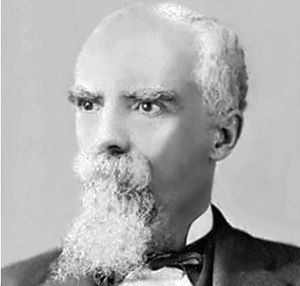Perseverance in prayer

E. M. Bounds
RESUMEN: The prayers recorded in the Bible may be short in words, but the godly men of God spent many hours in deep and intense prayer. Short devotions result in weak faith and a narrow character. It takes time for God to permeate our spirit, and short devotions break the channel of God's grace. Extensive prayer in the early hours of the day works to rekindle and invigorate a decayed spiritual life. Prayer is the most important occupation, and to dedicate ourselves to it, we must have calm, time, and purpose. Our age is not distinguished by prayer, and we need to relearn the value of prayer and make it a priority in our lives. The man who can bring preachers and the church back to prayer will be the greatest benefactor of our age.
It is true that the prayers recorded in the Bible are short in printed words, but the godly men of God spent sweet and holy hours in combat. They won with few words but with a long wait. Moses' prayers seem short, but Moses prayed to God with fasting and mourning for forty days and nights. What is said of Elijah's prayers can be concentrated in a few paragraphs, but surely Elijah, who "praying, praying", spent many hours of rude struggle and elevated communion with God, before he could with firm audacity, say to Ahab: "There will be no rain or dew in these years, except by my word." The verbal account of Paul's prayers is short; yet Paul "prayed unceasingly by day and by night." The "Lord's Prayer" is a divine epitome for childish lips, but the man Christ Jesus prayed many whole nights before doing his job; and these prolonged and sustained devotions gave to his finished work and perfection, and to his character the fullness and glory of his divinity.
Spiritual work is overwhelming and men are reluctant to do it. Prayer, true prayer, means a use of serious attention and time, which flesh and blood reject. Few people are of such strong grain that they are costly effort when superficial work passes through the market with ease. We can get used to our begging prayers until they satisfy us, at least we keep the decent formulas and quiet the conscience, which is a deadly opium! We can weaken our prayers and be unaware of the danger until the fundamentals are gone. Quick devotions result in weak faith, feeble conviction, and dubious piety. Spending a short time with God means being small for God. The lack of prayer makes the character narrow, miserable and careless.
Spiritual work is overwhelming and men are reluctant to do it. Prayer, true prayer, means a use of serious attention and time, which flesh and blood reject. Few people are of such strong grain that they are costly effort when superficial work passes through the market with ease. We can get used to our begging prayers until they satisfy us, at least we keep the decent formulas and quiet the conscience, which is a deadly opium! We can weaken our prayers and be unaware of the danger until the fundamentals are gone. Quick devotions result in weak faith, feeble conviction, and dubious piety. Spending a short time with God means being small for God. The lack of prayer makes the character narrow, miserable and careless.




